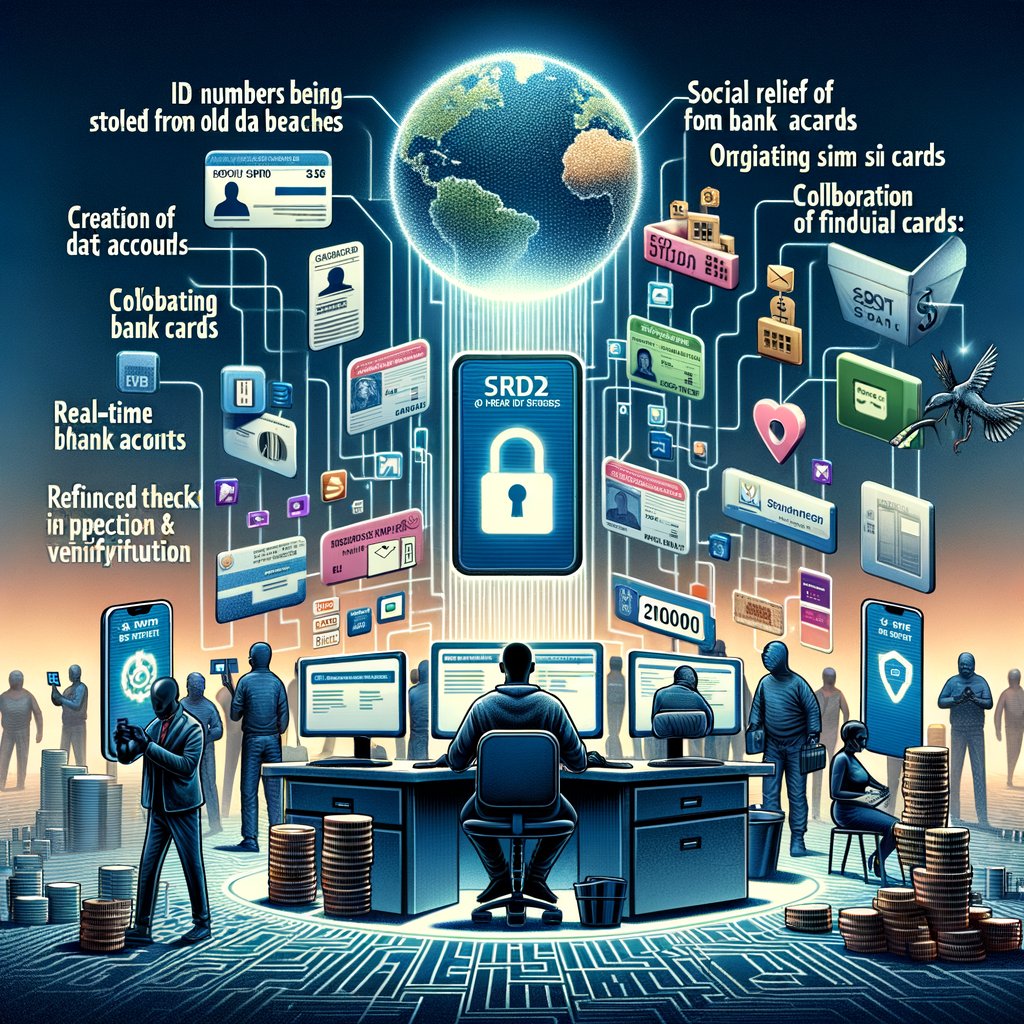Image created by AI
The Battle Against SRD Grant Fraud in South Africa: A Continuous Endeavor
The Social Relief of Distress (SRD) grant, introduced during the 2020 Covid-19 pandemic, was meant to aid South Africans in dire financial situations by providing a monthly R370 grant to around nine million recipients. This grant, potentially a precursor to universal basic income in South Africa, has unfortunately also become a target for large-scale fraudulent activities, threatening the integrity of the nation's social welfare systems.
Activists and investigative reports have outlined a multi-step fraud process involving the use of stolen personal data to illicitly claim SRD grants. This con starts with the acquisition of ID numbers from prior data breaches. Fraudsters then create bank accounts and obtain SIM cards, both of which have been subjects to lax verification processes in the past. These elements are pooled together to apply for the SRD grant online, a method previously simple due to insufficient checks and balances in the digital application process.
Historically, entities like Shoprite and TymeBank have been exploited due to their previously lenient account verification processes. Both organizations, aware of their inadvertent role in this fraud, have since tightened measures, requiring biometric verification for new accounts which has notably reduced the influx of fraudulent applications.
The real-time checks conducted by the South African Social Security Agency (SASSA), in collaboration with banks and other financial bodies, are meant to validate the eligibility of applicants. This involves confirming that the applicants are not recipients of other financial aids like the National Student Financial Aid Scheme and do not possess an income exceeding R625 per month.
Past measures have been reactive, and current strategies involve more proactive steps. SASSA now restricts the number of inquiries a single device can make to their systems to prevent automated bulk applications and insists on biometric verification for grant recipients. Despite these enhancements, the scale of ongoing fraud remains hard to quantify, primarily due to the complexities involved in identifying and proving identity theft.
Looking ahead, SASSA, alongside financial institutions, is increasing vigilance and cooperation, refining their detection and verification processes to prevent abuse of this critical financial aid resource. The commitment to undertakings such as auditing existing applications and restricting third-party access to sensitive systems shows a path forward towards a more secure and equitable distribution of SRD grants.
Such incidents underscore the pressing need for robust cybersecurity measures and continuous monitoring to protect public resources and ensure they reach those genuinely in need. The onus is also on citizens to remain vigilant and report any suspicious activities to help thwart these exploitation schemes.







